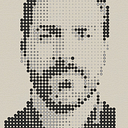The Dawn of a New Age: How the AI Revolution Mirrors the Middle Ages and Not an Industrial Revolution [part 1]
A very weird introduction here to a more humanistic than canonical vision of the following observations.
Many people compare the rise of artificial intelligence (AI) to the Industrial Revolution, which was a period of rapid economic and social change in the 18th and 19th centuries. The Industrial Revolution was driven by the invention and application of new technologies, such as steam engines, railways, factories, and textiles, which enabled mass production, transportation, and communication. However, this comparison may not capture the full extent and uniqueness of the changes that AI is bringing to our world. A more appropriate analogy can be found in the Middle Ages, which was a period of profound transformation and transition in European history, spanning from the 5th to the 15th century. The Middle Ages were marked by political fragmentation, social inequality, religious diversity, cultural exchange, scientific innovation, artistic expression, and military conflict. The Middle Ages also witnessed the collapse of the Roman Empire, the rise of feudalism, the emergence of nation-states, the spread of Christianity and Islam, the development of scholasticism and humanism, the invention of the printing press and gunpowder, and the discovery of new lands.
Here are some reasons why the AI Revolution resembles the Middle Ages more than the Industrial Revolution:
- The AI Revolution is not just about machines, but about ideas. The Industrial Revolution was driven by the development and application of mechanical and chemical technologies, such as steam engines, railways, factories, and textiles. These technologies enabled mass production, transportation, and communication, but they did not necessarily change the way people thought or behaved. The AI Revolution, on the other hand, is driven by the development and application of cognitive and digital technologies, such as natural language processing, computer vision, machine learning, and robotics. These technologies enable not only automation, but also intelligence, creativity, and interaction. They challenge and expand our notions of what is possible and desirable in various domains of human activity, such as art, science, education, health, and governance.
- The AI Revolution is not just about progress, but about disruption. The Industrial Revolution was marked by a gradual and linear process of economic and social change, where new technologies replaced or complemented existing ones, and where new industries and markets emerged or grew. The AI Revolution, on the other hand, is marked by a rapid and nonlinear process of economic and social change, where new technologies disrupt or displace existing ones, and where new industries and markets appear or vanish. The AI Revolution creates new opportunities and challenges for individuals and organizations, but also new uncertainties and risks.
- The AI Revolution is not just about convergence, but about divergence. The Industrial Revolution was characterized by a process of convergence and integration among different regions and cultures, as trade, migration, and communication increased. The Industrial Revolution also fostered a process of standardization and homogenization among different products and practices, as mass production and consumption prevailed. The AI Revolution, on the other hand, is characterized by a process of divergence and differentiation among different regions and cultures, as innovation, competition, and customization increase. The AI Revolution also fosters a process of diversification and specialization among different products and practices, as personalization and niche markets prevail.
The AI Revolution is a new dawn. It’s a time of great potential and peril, much like the Middle Ages. The challenge for us now is to ensure that this new age benefits all of humanity, not just a privileged few. The choices we make now will shape the course of our future, much like the events of the Middle Ages shaped the world we live in today.
This article continues on my website, have a look here and enjoy it
